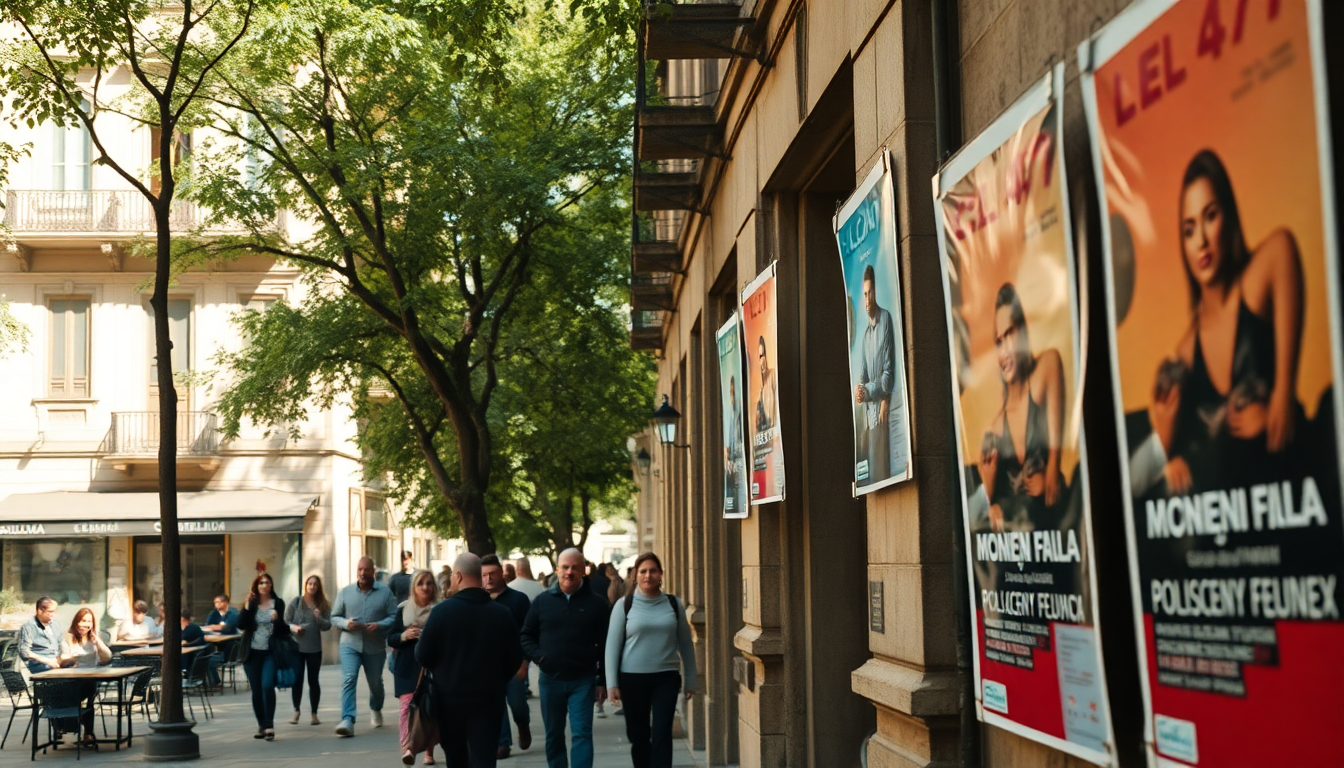Table of Contents
Recently, the Spanish film industry has been buzzing with excitement, thanks to Marcel Barrena’s gripping film, El 47. This heartfelt drama, inspired by true events, has not only enchanted audiences but has also received critical acclaim, racking up awards and impressive box office numbers. As it continues to resonate with viewers worldwide, it’s worth diving into what makes this film so special and how it reflects the vibrant culture of modern Barcelona.
Market Overview and Box Office Success
El 47 has made quite a splash in the film market, with impressive figures that highlight its popularity. The film has grossed around €3.98 million (about $4.62 million) in Spain alone, drawing in over 625,000 viewers in local theaters, according to Comscore and Spain’s Icaa film institute. This remarkable performance underscores a strong appetite for stories that resonate with the socio-cultural fabric of the region.
But it doesn’t stop there! The film has also landed distribution deals in various international markets, showcasing its global appeal. In Italy, El 47 is being distributed by Movies Inspired, while in Poland, Mañana is on board, and BookMyShow is handling distribution in India. Notably, during its recent showcase at Australia’s Spanish Film Festival, it quickly climbed into the Top 20 of the Australian box office in its opening weekend. Such successes not only reflect the film’s artistic quality but also its commercial viability across diverse markets.
Film Synopsis and Cultural Significance
At its core, El 47 follows the journey of Manolo Vital, a bus driver brought to life by the talented Eduard Fernández. The story unfolds as Manolo grapples with the Barcelona City Council’s claim that the Route 47 bus can’t reach the Torre Baró district due to its narrow and unsafe roads. His determination to drive the bus home highlights broader themes of resilience, community, and the challenges faced by immigrant neighborhoods in Spain during the 1970s.
This film doesn’t just tell Manolo’s personal story; it also mirrors the significant changes within Barcelona itself. It explores the historical context of the 1950s and 1970s, a time when many neighborhoods were shaped by immigrants seeking better opportunities. These areas often lacked essential services, including public transport, vividly illustrating the socio-economic challenges of the era. By interweaving personal and collective narratives, El 47 offers audiences a deep understanding of the evolution of modern Barcelona.
Awards and Recognition
The recognition garnered by El 47 speaks volumes about its artistic excellence. The film has bagged over 30 awards, including five prestigious Goya Awards, making it the most awarded film at the latest Goya ceremony. Additionally, it enjoyed remarkable success at the Gaudí Awards in Catalonia, winning eight awards, including Best Film. This kind of recognition underscores the significance of storytelling that connects with cultural and historical themes.
Moreover, El 47 has gained international attention, being showcased at numerous film festivals, such as the Shanghai International Film Festival and the Nantes Spanish Film Festival. This exposure allows for a wider appreciation of the film’s themes and artistic merit. The acclaim has also spotlighted its lead actor, Fernández, who recently received Spain’s National Film Prize for his outstanding performance, highlighting the film’s impact on individual careers within the industry.
Conclusion and Future Prospects
As El 47 continues to make its mark in various international markets and festivals, its success is a powerful reminder of cinema’s ability to reflect societal narratives and promote cultural understanding. The film not only entertains but also educates viewers about the rich tapestry of Barcelona’s history and the lives of those who have shaped it. With its ongoing acclaim and recognition, the future looks bright for El 47 as it continues to capture the hearts of audiences and potentially rack up more awards, solidifying its place in the rich landscape of Spanish cinema.


